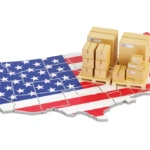Customs Duties in Pakistan
Customs duties play a crucial role in Pakistan’s international trade landscape, impacting businesses and consumers alike. This comprehensive guide dives into the nuances of customs duties in Pakistan, covering regulations, rates, and key considerations for importers and exporters.
Introduction to Customs Duties in Pakistan
Customs duties in Pakistan refer to the taxes imposed on goods transported across international borders. These duties are levied by the Pakistan Customs authorities to control the flow of goods, protect domestic industries, and generate revenue for the government. Understanding these duties is essential for anyone involved in international trade within Pakistan.
Import Duty Structure and Types
Tariff Structure (Great keyword)
Pakistan follows a structured tariff system based on the Harmonized System (HS) codes. The tariff rates can vary depending on the type and nature of the goods imported. Generally, duties can be ad valorem (percentage-based) or specific (fixed amount per unit).
Types of Duties (Great keyword)
In Pakistan, import duties include Basic Customs Duty (BCD), Additional Customs Duty (ACD), Regulatory Duty (RD), and Additional Regulatory Duty (ARD). Each type of duty serves a specific purpose, such as revenue generation or industry protection.
Understanding Duty Calculation
Factors Influencing Duty Calculation (Great keyword)
The calculation of customs duties in Pakistan considers factors like the customs value of the goods, tariff classification, and applicable exemptions or preferential rates under trade agreements. Importers must accurately determine these factors to comply with regulations and avoid penalties.
Calculation Methods (Great keyword)
Customs duties are typically calculated based on the CIF (Cost, Insurance, Freight) value of the imported goods. This value is adjusted by adding freight and insurance charges to the transaction value of the goods.
Duty Payment and Procedures (Great keyword)
Importers are required to pay customs duties before clearing their goods through customs. The payment process involves submitting relevant documents, such as the Bill of Entry, and may require assistance from customs agents or brokers.
Import Regulations and Compliance
Regulatory Framework (Great keyword)
Pakistan’s import regulations are governed by the Pakistan Customs Act and other relevant laws. Compliance with these regulations is essential to avoid delays in customs clearance and ensure smooth import operations.
Prohibited and Restricted Goods (Great keyword)
Certain goods are prohibited or restricted from being imported into Pakistan due to safety, security, or regulatory concerns. Importers must be aware of these restrictions to prevent legal repercussions.
Import Documentation Requirements (Great keyword)
Importers must prepare and submit various documents to customs authorities, including the Commercial Invoice, Packing List, and Import License (if applicable). Proper documentation is crucial for accurate assessment of customs duties.
Trade Facilitation and Challenges
Trade Facilitation Measures (Great keyword)
Efforts are underway in Pakistan to enhance trade facilitation through initiatives like the Pakistan Single Window (PSW) and automation of customs procedures. These measures aim to streamline processes and reduce the time and cost of doing business.
Challenges in Customs Compliance (Great keyword)
Despite improvements, challenges such as bureaucratic procedures, corruption risks, and infrastructure constraints persist. Navigating these challenges requires vigilance and understanding of local customs practices.
Conclusion
In conclusion, customs duties in Pakistan form a critical part of the country’s trade policy, impacting importers, exporters, and consumers alike. Understanding the tariff structure, duty calculation methods, and regulatory framework is essential for businesses to navigate international trade successfully.
FAQs about Customs Duties in Pakistan
What are customs duties?
Customs duties are taxes imposed by the government on goods imported into or exported from a country.
How are customs duties calculated in Pakistan?
Customs duties in Pakistan are calculated based on factors like the customs value of goods, tariff classification, and applicable duty rates.
What documents are required for customs clearance in Pakistan?
Documents such as the Commercial Invoice, Bill of Lading, and Packing List are typically required for customs clearance in Pakistan.
Are there exemptions or preferential rates for customs duties in Pakistan?
Yes, certain goods may qualify for exemptions or preferential duty rates under trade agreements or specific government policies.
What are the penalties for customs duty non-compliance in Pakistan?
Non-compliance with customs regulations in Pakistan can result in fines, penalties, and delays in goods clearance.






